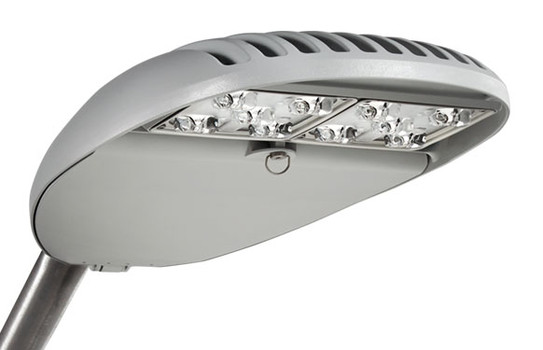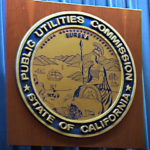Semiconductor maker Cree announced on Monday a ground-breaking new LED replacement for streetlights. The newly unveiled XSPR LED Residential Street Light series brings the advantages of LED lighting to municipal street-lights, while being priced low enough that cost savings from lower electricity bills pays for its purchase within a year.
LED light bulbs, generally speaking, deliver the same quantity of light while consuming a miniscule fraction of the energy. That means the potential to save money is high because use of LED lights slashes electricity costs even more than is the case for compact fluorescent light bulbs. LED lights are also more reliable and last longer than any other sort of lighting, meaning their purchase price is amortized over a longer period of time.
Cree says the base price for units in the XSPR LED Residential light series is $99, and that thanks to consuming 65% less electricity, the savings on electricity costs pays for purchase of the lights within a year. The payback period is based on 12 hours of use per day, and electricity costs of $0.11 per kilowatt-hour.
“With the low initial price of the XSPR street light and the dramatic energy savings, wholesale replacement of existing street lights becomes a simple choice,” said Al Ruud, Cree vice-chairman, lighting. “Utilities and city managers can now improve the lighting in their neighborhoods, save energy and see payback in less than a year. Why would anyone choose otherwise?”
The 25-watt and 42-watt XSPR street lights are designed to replace up to 100-watt high-pressure sodium street lights. Optics technology that Cree calls NanoOptic Precision Delivery Grid achieves better optical control than traditional street lighting fixtures and efficiently delivers white uniform light for safer-feeling communities.
- Is there enough Grid Capacity for Hydrogen Fuel Cell or Battery Electric cars? - April 23, 2023
- Is Tesla finagling to grab federal NEVI dollars for Supercharger network? - November 15, 2022
- Tesla announces the North American Charging Standard charging connector - November 11, 2022
- Lightning Motorcycles adopts Silicon battery, 5 minute charge time gives 135 miles range - November 9, 2022
- Tesla Autopilot under US Dept of Transportation scrutiny - June 13, 2022
- Spectacular CNG bus fire misrepresented as EV bus fire - April 21, 2022
- Moldova, Ukraine, Georgia, Russia, and the European Energy Crisis - December 21, 2021
- Li-Bridge leading the USA across lithium battery chasm - October 29, 2021
- USA increasing domestic lithium battery research and manufacturing - October 28, 2021
- Electrify America building USA/Canada-wide EV charging network - October 27, 2021













